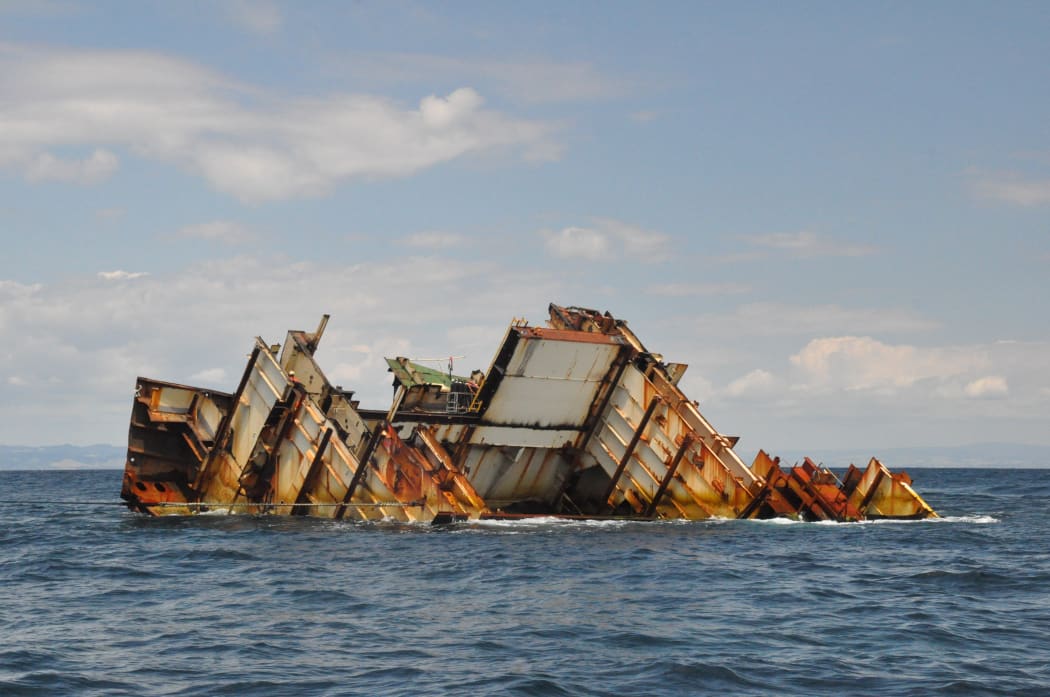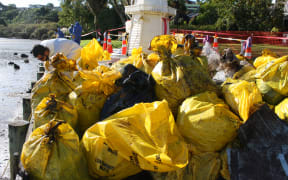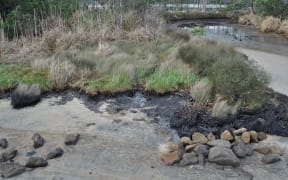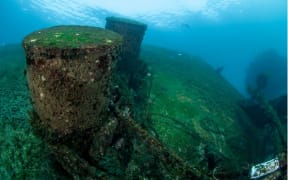Ships and oil rigs that come to New Zealand will be forced to massively boost the amount of insurance they carry to guard against the environmental costs of an accident.

The Rena's bow was dismantled in February 2013. Photo: RNZ
It is not known what the new level will be, but it could be five to ten times current levels, perhaps more.
The matter came up at a hearing in Wellington to consider a request by Shell Todd Oil Services to extend its gas pumping operations at the Maui gasfield off the coast of Taranaki, which has been operated since 1979 and could still be going in 2030.
The company needs a marine consent to continue operating under legislation governing New Zealand's Exclusive Economic Zone.
While considering that application, the Environmental Protection Authority called managers from Maritime New Zealand to find out what protections are in place against an oil spill.
They learned that ships and oil rigs must carry a level of insurance equivalent to $27 million.
This does not refer to the level the Shell Todd rigs actually carry, but is the legal minimum for all vessels.
Maritime New Zealand general manager for safety and response Nigel Clifford told the hearing this was "not a very large amount on money at the present time".
Outside the hearing, he said Government officials were working on requiring a much higher fee.
He did not say how much this would be, but said some wrecks overseas were incurring costs of hundreds of millions of dollars and this was being looked at by officials.
Clean up costs for the container ship Rena after it ran aground off the Bay of Plenty four years ago have reached $45 million but salvage costs have been estimated at $450 million.
Any new coverage level would be likely to have to go some way to meeting these sorts of sums.
Legal arguments are holding up the question of the Rena's final salvage.
Meanwhile, Mr Clifford has given more details on how Maritime New Zealand would deal with an oil spill.
He said 400 trained oil spill staff would be available in a crisis, but that there would also be help from abroad, mainly from Australia, from both private and state sector groups.
Later, chairman of the EPA panel Alan Bickers said an accident at Maui would not release oil, but natural gas and some condensate.
He cited evidence presented to the hearing, which said a loss of control at the wellhead for 106 days was the worst case scenario the inquiry had heard of.
He said that would be the time required to bring a vessel from Singapore to get the wellhead under control. Mr Bickers said this worst-case scenario would be combined with very bad weather.




